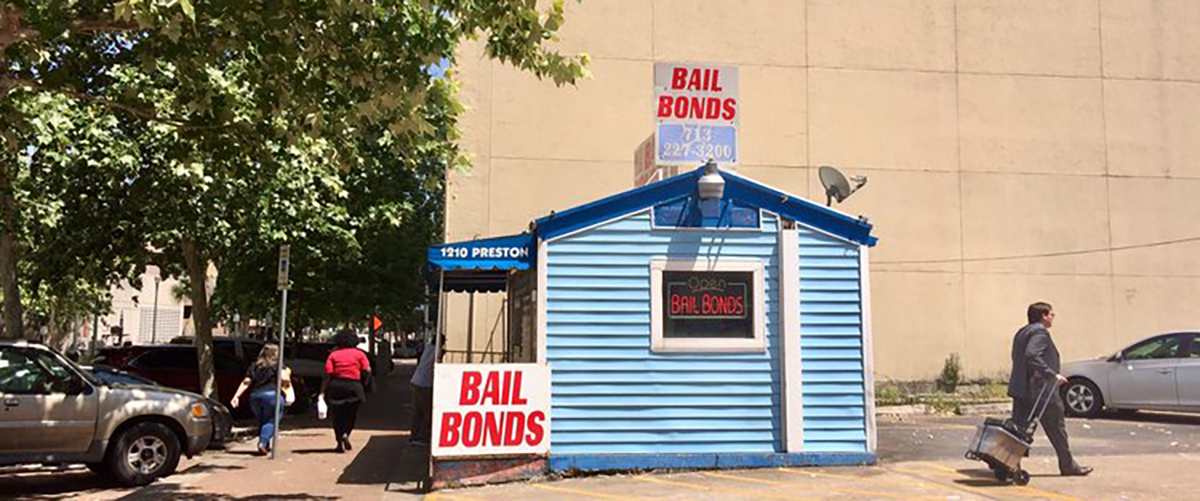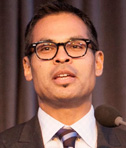Featured Jurisdictions Interagency Collaboration Jail Populations August 17, 2018
Hear the trailer for this 10-part open-source series that looks at how residents are taking action locally.
As a staff writer at The Atlantic covering criminal justice, I often experienced a mix of fascination, rage, and sheer awe at the levels of dysfunction embedded in the overlapping criminal justice systems in the United States.
In my reporting, I wrote about policies and practices that were both antithetical to rehabilitation and incongruous with the idea of carrying out justice. Things like holding people for minor offenses because they can’t afford bail. Charging teens with status offenses and then having college applications ask about prior records. Releasing tens of thousands of people incarcerated in federal prison annually without a government-issued I.D. with which to re-start their lives. The list is exhausting.
The work of reporting on these separate but related actions helped me to see very clearly what I consider the true obstacle to effective criminal justice reform: public awareness.
Though the issue of justice reform has gained momentum in the last decade, there is still only a subset of a niche group of people who possess a working knowledge of the issues and the structures at play. They include academics, activists, policymakers, and some elected officials whose constituencies are deeply impacted. The rest of the country remains blissfully unaware.
That ignorance is the primary motivation for 70 Million—which is the podcast a team of journalists and I have created—so-named because today there are about 70 million American adults with a criminal record. That’s one-in-three-and-a-half adults.
As I was initially developing the idea for 70 Million, I tested its potential by mentioning this fact to friends and family not in the field. All of them were aghast at the figure. “Do people know this?” “Why didn’t I know that?” “Why don’t we hear about this?” These are some of the questions that followed. But I did not have all the answers and, having just launched a media company, I also did not have the funds to take on the work of finding them. That’s when I decided to approach the Safety and Justice Challenge at the John D. and Catherine T. MacArthur Foundation.
The Challenge has a strong reputation for supporting meaningful work in criminal justice. I’d also connected with them while at The Atlantic. It was a huge leap, and months of writing and submitting supporting materials. In the end, they saw the potential for a reported open-source podcast that chronicles ground-level solutions in criminal justice to help bridge the knowledge gap between the specialists and the general public.
So, on August 27, 70 Million will premiere after a team of brilliant and dedicated reporters and producers spent the last eight months traveling the country to collect stories about regular folks becoming catalysts for jail and justice reform in their hometowns. A quick shout out to the dream team, so far: Jen Chien, Luis Gil, Mitzi Miller, Kate Krosschell, Oluwakemi Aladesuyi, Amy Alexander, Jesse Alejandro Cottrell, Ruxandra Guidi, Heidi Shin, Maria Murriel, Nissa Rhee, Ryan Katz, Liza Veale, Nadege Green, and Daniel Rivero.
Today, I am so happy that The Vera Institute of Justice, whose work I have long admired and often referenced in my own reporting, is doing us the honor of unveiling our podcast trailer to its readers and supporters. It has been a singular goal of ours to create a podcast that contributes to the conversation and spurs people to act around the myriad and often intractable consequences of injustice.
For the inaugural season of 70 Million, we focused on jails because they are the revolving door into our country’s overlapping systems of incarceration. Just over 3,300 jails process about 12 million admissions every year. And some 18,000 police agencies funnel people into these warehousing systems that are outmoded, criminally ineffective, and dangerous. The result of over half a century of misguided tough-on-crime laws, racialized sentencing, and a national dragnet on the poor is that today 70 million American adults have a criminal record.
More than likely, you know someone with a criminal record. You may have a record yourself. And the lasting effects of such a mark have serious consequences for returning citizens, their families, and communities. It’s harder to get a job. (Tens of thousands of jobs that require licensing automatically disqualify people with records.) It’s harder to go back to school. (A study of a state university system found that about two-thirds of applicants with a felony criminal offense record stopped applying after their criminal history came up—compared to 21 percent of all applicants.) It’s harder to find affordable housing. (Many states make it illegal for returning citizens to live in public housing, even with their own families.)
That’s why 70 Million will tell stories about jail reform. We want to show how residents and communities are driving real change. If you’d like to learn more about 70 Million and get involved in reforms yourself, we’re proud to offer syllabi, resources, toolkits, and more on our site, 70millionpod.com. We’d love to hear from you: hello@lantiguawilliams.com or @LanWilCo.


